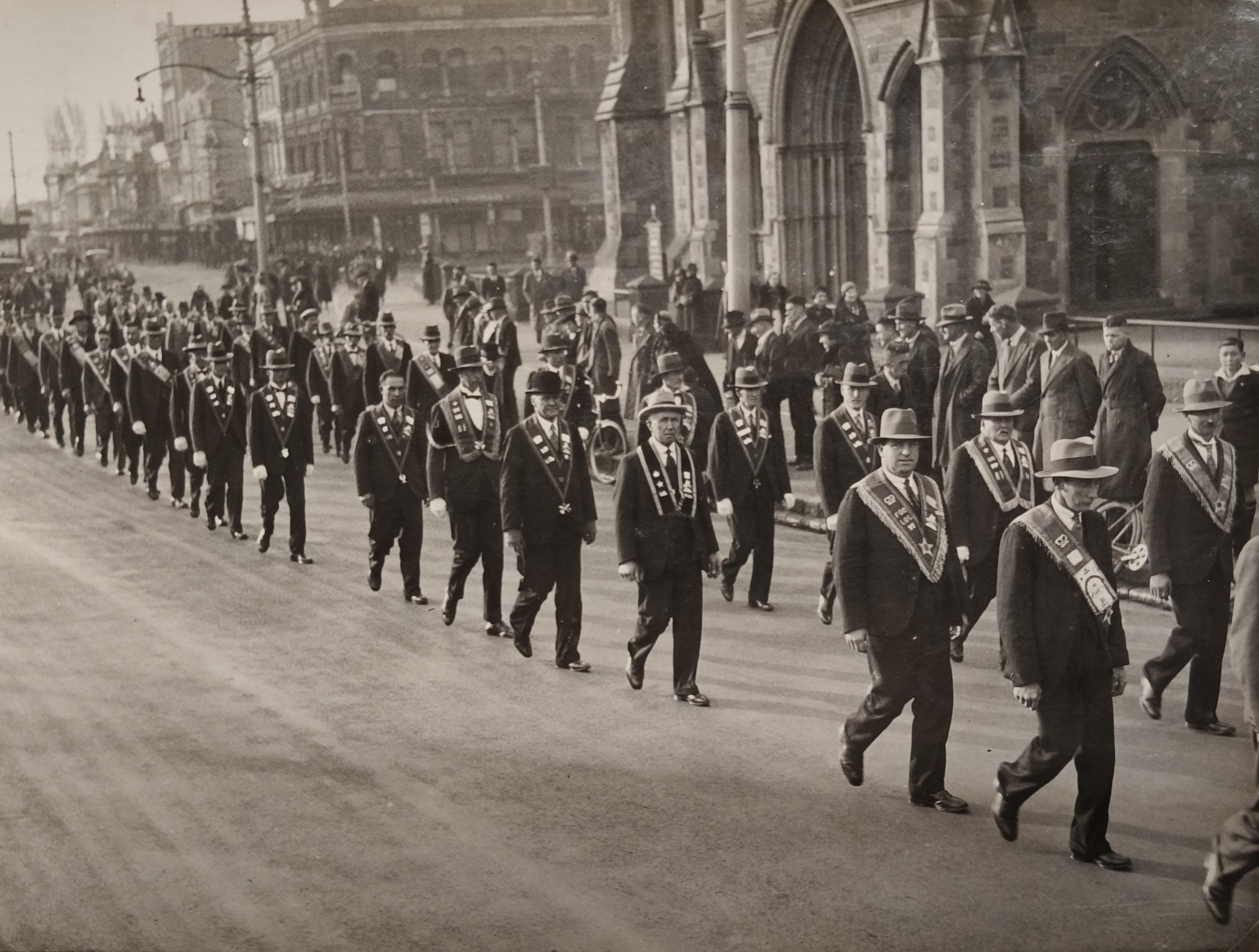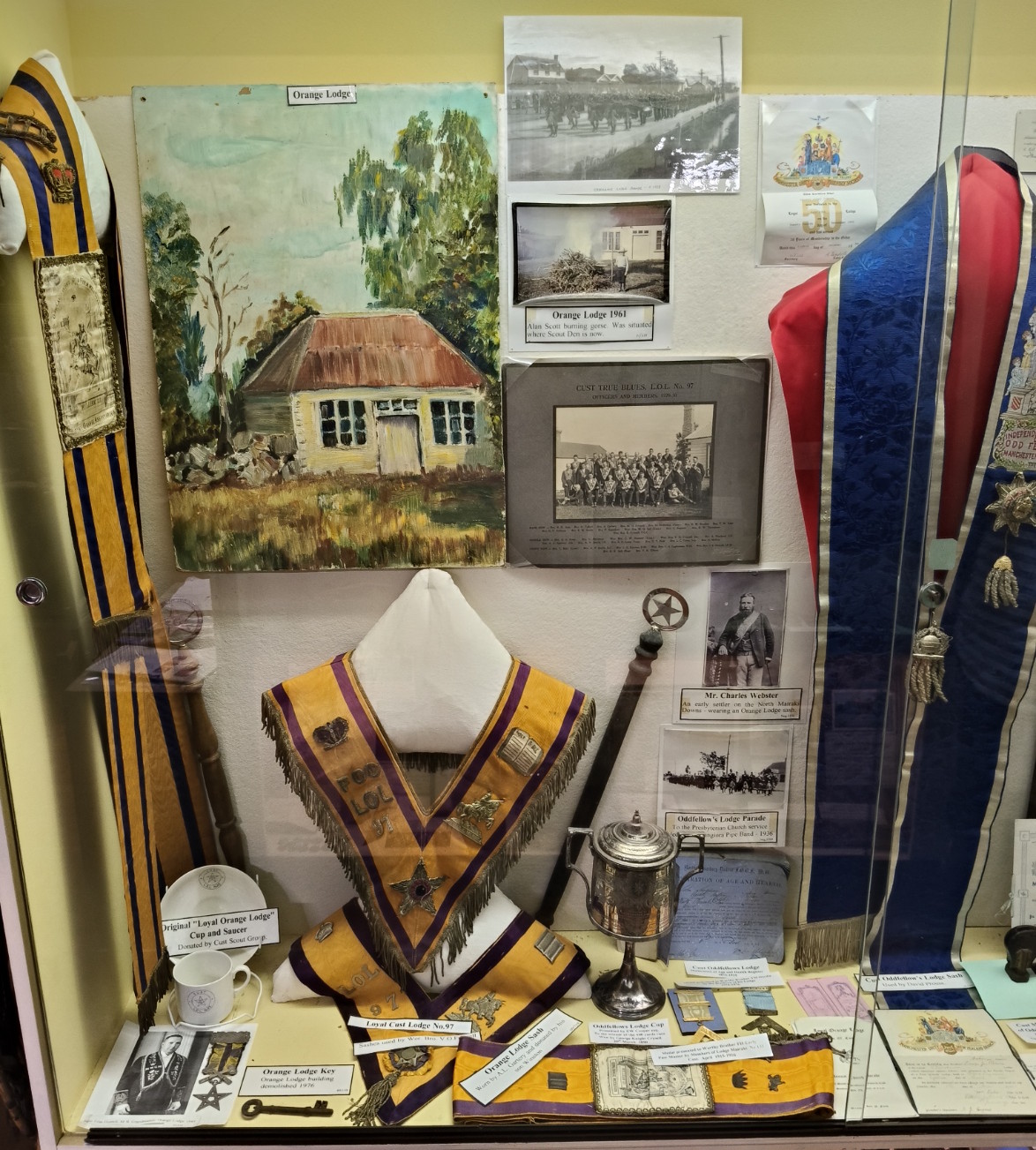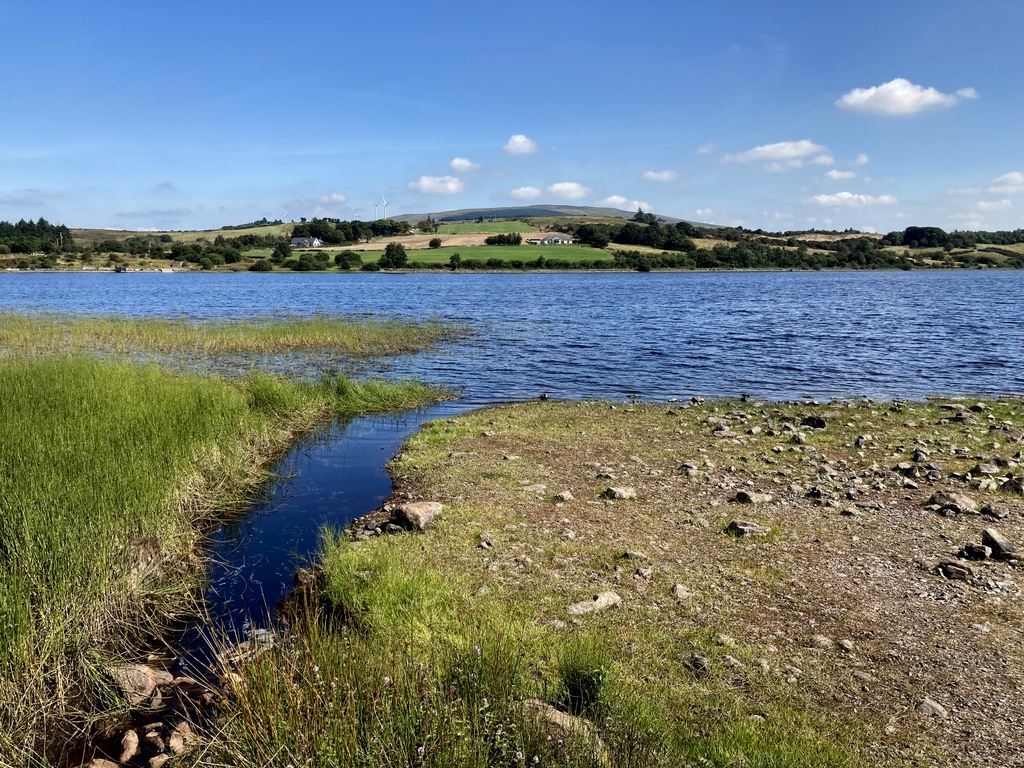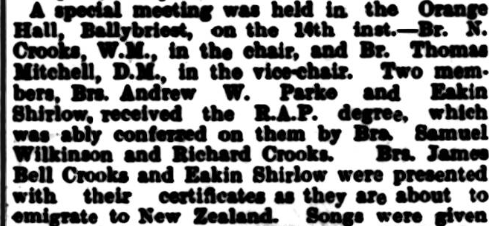David Bell & the Orange Lodge in New Zealand
Last time we looked at the erroneous headstone of my distant relative, David Bell.
Like many of my Irish ancestors, David was born in the townland of Dunmore, which lies about 8km north-west of Cookstown, County Tyrone, Ireland. At the time of these events, Ireland was a single entity; nowdays, these farms are part of Northern Ireland.
Dunmore is nestled sleepily between the eastern peaks of the Sperrin range; at an elevation of about 250m and touching on the picturesque Lough Fea. The eastern boundary of the townland is marked by the Lissan Water, a stream running down from the Sperrins to the Lissan House; at the time a landlord’s seat, but now a tourist attraction.
Emigration to the West Coast
David made the decision to emigrate to New Zealand aboard the immigrant ship Rimutaka, departing November 1906. He travelled with his maternal-side cousin, Mary Anne Mitchell. Mary Anne was going to join her father Alexander who had emigrated in 1894 and was a coal miner of Mokihinui, on the upper West Coast, beyond Westport. Mary Anne’s planned journey may have contributed to David’s decision; it was common for emigrant girls to not wish to make the difficult journey alone.
David worked in the same coal mines as the Mitchells did. After about six years in the mines, he opted for a career change.
Movement to Canterbury
David joined a farming partnership at Fernside, north of Christchurch, with another Dunmore man, Eakin Shirlow. Then, in about 1920, he moved inland to Oxford, which by this time was a farming community – the forestry which had spawned the town having long been exhausted.
David had no children; but in 1920, he married his widowed and childless cousin Lizzie Mitchell (née Bell). Lizzie and her husband James also came to the upper West Coast from Dunmore around 1908, but James it seems died not long after their arrival.
David passed away in 1933 at Oxford; as reported in his New Zealand newspaper obituary, “he was admired for his straightforward character and outstanding integrity”, and there was a large attendance for his funeral at Oxford Cemetery.
The Orange Order
David was noted in his Irish newspaper obituary as a member of the Loyal Orange Lodge of Oxford. His farming partner Eakin Shirlow was also an Orangeman; in fact, in 1908 the Ballybriest Orange Lodge had conferred the Royal Arch Purple degree (more on this in a moment) on Eakin and another young man from Dunmore, James Bell Crooks, on the eve of their emigration to New Zealand.
The Orange Order is a fraternal organization originating from Ulster, Ireland. They name themselves after William III of Orange, a 17th-century King of England whose reign was marked by sectarian violence as William, a Protestant, took the British throne by force from King James II/VII, the last Catholic monarch. James’s supporters, known as Jacobites, fought several bloody battles attempting to restore him to the throne.
Accordingly the Orange Order professes to advance the cause of Protestantism in Ulster, at the expense of Catholicism. They are widely considered controversial across Ireland because this sectarian divide has fueled thousands of deaths over the last hundred years or more, with many jurisdictions calling for their parades to be banned.
Nevertheless, membership of Orange Lodges and participation in fraternal life, earning “degrees” and so on, was common amongst Ulster Protestants; although as with religion today, I’m not really sure how many were dedicated to the cause, versus those who just joined for the sense of belonging.
The Orange Order in New Zealand
Anyway, a curious phenomenon was the establishment of lodges outside of the Home Isles. New Zealand was also home to chapters of the Oddfellows, and Freemasons. The first Orange Lodge in the South Island – or the Middle Island as it was known at the time, opened in 1870; and with the installation of the railways, many more lodges sprang up all over the island.
Although the political cause of the Lodges in Ireland was largely a non-issue in New Zealand, the Irish emigrants may have found familiarity in continuing the brotherhood in their new land. However they were not without controversy here either; in 1879 violence broke out in Christchurch as a group of Irish Catholics tried to stop the Orange Walk.

The Oxford Lodge was opened in 1883, meeting in the West Oxford Town Hall at first, before construction began on a dedicated lodge at Oxford on the 12th of July 1883, celebrated by a procession from the other North Canterbury lodges alongside the Rangiora Brass Band.
As reported in his Irish obituary, David Bell was chaplain of the Oxford Loyal Orange Lodge at the time of his death. David was also an Elder of the Oxford Presbyterian Church; as in Ireland, men often held positions in both organizations.
Today, the Orange Order of New Zealand’s mission is to maintain our status as a parliamentary democracy subject to the British Crown, whilst promoting non-denominational education, and liberty of thought and religion.

Addendum
James Bell Crooks was a nephew of my great-great-grandmother; he went to Auckland, and that’s another story in itself.
The Orangeman who farewelled James and Eakin was Eakin’s brother-in-law Richard Crooks. Richard would himself emigrate to Canterbury in 1926 with eleven chidren, following the unfortunate deaths of both of his wives due to childbirth complication.
Richard was joined at his home on 66 Ivory Street, Rangiora, by the widow Lizzie Bell, after David Bell had died. Richard’s descendants are well entwined in the Rangiora & North Canterbury community.
Richard was the youngest of eleven children; and his second wife Sarah the youngest of 10 children. Their youngest daughter is still alive and has recently celebrated her centenary. Her grandparents were all born between 1827 and 1844 – few living people can say that!

